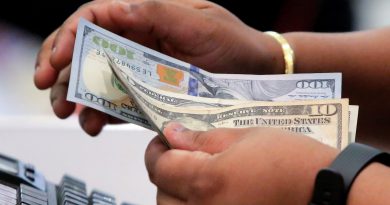‘Sell in May and go away’ is a catchy adage, but probably not a good idea

For fans of seasonal trading patterns, April has been a real bummer. It’s not just that it has been a down month (down 3.0% for the S & P 500, breaking a 5-month win streak). It’s that April is supposed to be a strong month. It is traditionally the best month of the year for the Dow Industrials (average gain 1.9% since 1950, according to the Stock Trader’s Almanac), and the second best month for the S & P 500 (up 1.5%, second only to November’s 1.7% gain). Goodbye to all that. Of greater concern is that we are about to enter a seasonally weak six-month period, and on the surface the old “Sell in May and go away” adage seems to be justified: the average yearly gain for the Dow Industrials since 1950 has been 0.8% from the beginning of May to the end of October, but 7.3% measured from November through April. So does this mean that simply selling now would produce superior returns to staying in the market? It does not. Nicholas Colas from DataTrek recently took a look at the best six months strategy from a shorter time period (1980 to 2024). He also broke the data into smaller pieces. Here are the results for the S & P 500: S & P 500: seasonal trends (since 1980) January–May (5 months): +4.6% June–October (5 months): + 1.8% November–December (2 months): + 3.3% January–December: + 10.3% Source: DataTrek From this, it’s easy to see that the S & P has been notably weaker in the five months from June to October than the rest of the year. However, weaker does not mean down. The S & P, even in the weakest five months, was still up almost 2%. Colas’ conclusion: “Not being invested during this timeframe therefore leaves money on the table, and every marginal percentage point of performance helps, of course.” Jeff Hirsch from the Stock Trader’s Almanac also noted that the market has a “tendency to be weaker in April and May after big Q1 gains in election years,” but also noted that the last seven months of the year tend to be up. The bottom line: market timing is always a tricky affair. Most of the time, it’s not worth trying to do it. Many of these timing maxims could be trumped by an even better one: “It’s time in the market that matters, not market timing.”




